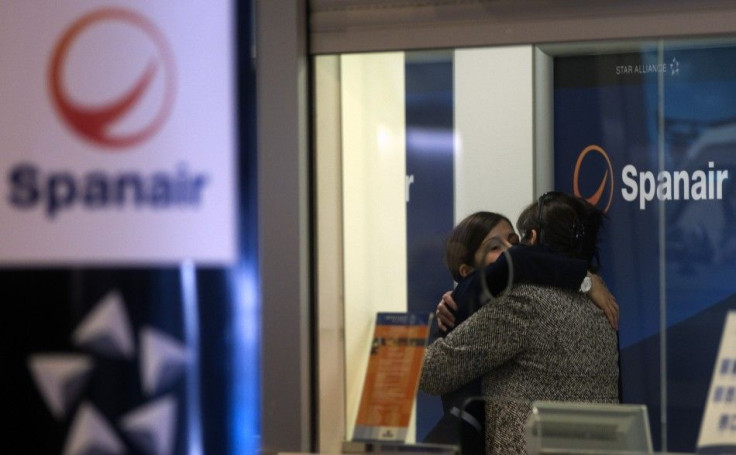Spanair Collapse Strands 20000, Rattles Industry

Spain's fourth-largest airline Spanair collapsed on Friday, leaving over 20,000 passengers stranded across Europe and Africa and putting Europe's second-tier airlines on alert.
The announcement marked the first collapse of a scheduled European airline since the last recession and came after a regional government in Spain said it could no longer fund the airline.
Spanair's financial woes grew in 2008 after a crash -- Spain's worst aviation disaster in 25 years -- that killed 154 people. The aircraft's wing flaps were incorrectly positioned and a warning system failed to alert the pilots.
The beleaguered airline announced Friday that its last commercial flight will land at 2100 GMT (10 p.m. EST).
Due to a lack of financial visibility for the coming months, the company has had no option but to cease flying out of a duty of care for the safety of its operation and the well-being of all concerned, Spanair said in a statement late Friday. The appropriate next steps will be taken as soon as possible.
The collapse comes after Qatar Airways ended takeover talks, cutting the prospect of further finances.
Spanair was founded in 1986 and carried nearly 13 million passengers in 2011 from 15 Spanish airports using a fleet of primarily Airbus SAS A320 series jets.
Catalonia's regional government had invested in Spanair since its 2008 purchase from SAS Scandinavian Airlines System International but said in a statement that it could no longer bankroll the airline. The government helped Spanair stay afloat with over 150m euros of subsidies.
Governments are increasingly reluctant to save ailing airlines as the debt crisis forces austerity programs in other parts of the economy. The Catalan government cited European legislation concerning competition and the current economic climate as reasons it could no longer finance the Barcelona-based carrier.
Over 200 flights were abruptly cancelled Friday, stranding thousands of passengers and putting roughly 4,000 people out of work.
Many affected passengers complained on local television stations that the airline was struggling to provide flight alternatives or even return luggage from passengers who checked in shortly before all flights were cancelled.
Though the airline said it had communicated its decision to Spain's air authorities and had been coordinating its demise with AENA, the country's airport authority, the Spanish government said it is taking legal action and may fine Spanair 9m euros over the collapse.
Many see the collapse of Spanair as a sign of weakening demand for air travel in Spain. Others fear that it could be a sign of what's to come as Europe's debt crisis spurs airlines to consider mergers or risk failure.
Many of Europe's second-tier airlines are struggling to find ground after the formation of three major groupings. Lufthansa expanded through bolt-on deals in neighboring Austria, Belgium, and Switzerland, Air France purchased KLM in 2004 to form the region's largest airline, and International Consolidated Airlines Group SA (IAG) was formed a year ago by a $9 billion merger of BA and Iberia.
Low-cost airline Ryanair, which had challenged the legality of Spanair's hefty subsidies, said on Monday it was examining opportunities in Spain following the collapse of the regional carrier.
We certainly see it as an opportunity to expand our base, the airline said in a statement.
Ryanair carries more people on routes to Spain than any airline based there.
Spanair released a statement on its Web site with additional information for affected customers.
© Copyright IBTimes 2024. All rights reserved.




















